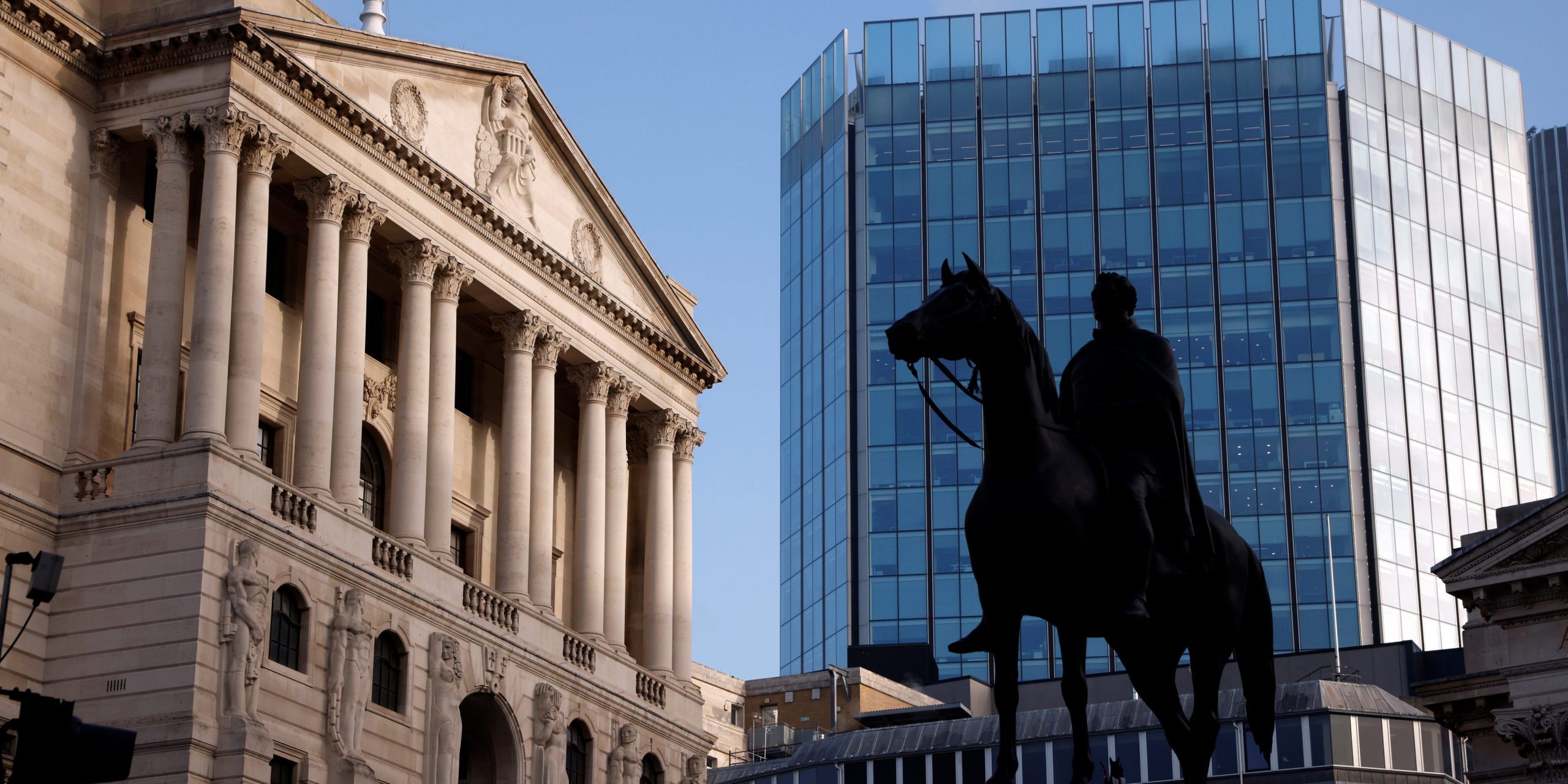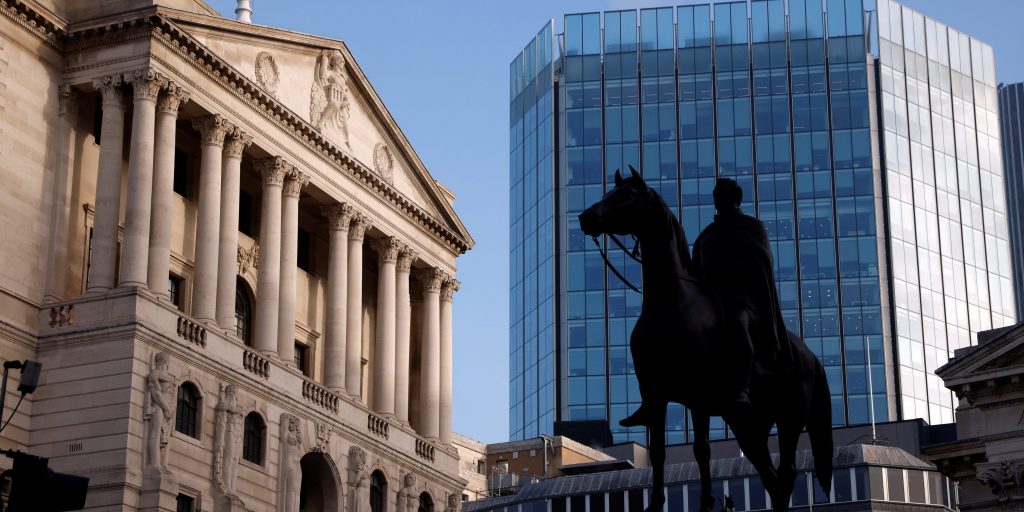
Reuters
- A market correction could take a bite out of asset prices if investors re-assess the state of the economy, the Bank of England said.
- The central bank flagged increased risk-taking and easy credit as possible catalysts for a market correction.
- BoE said stress tests indicated UK banks would be resilient to a wave of property developer failures coming from China.
A market correction could take a bite out of asset prices should investors re-assess the state of the economy, the Bank of England's Financial Policy Committee said on Friday.
The central bank committee flagged increased risk-taking and easy credit as possible catalysts for a market correction – which is generally considered a 10%-20% price drop.
"Asset valuations could correct sharply if, for example, market participants re‐evaluate the prospects for growth, inflation or interest rates," the Bank of England said in a statement. "Any such correction could be amplified by vulnerabilities in market‐based finance that were exposed in March 2020."
Loosening standards have continued showing up in financial segments like leveraged loans, a type of security that packages up riskier corporate debt. The quality of "covenants," or extra conditions on a given loan, has deteriorated in recent years as lenders have become more risk-happy.
"There are signs of continued loosening in underwriting standards and increased risk-taking in some investment banking businesses," the BoE said, adding that it was focusing on stress-testing to monitor banks' risk levels.
With uncertainty swirling around a possible Evergrande default, the bank said that stress tests indicated UK banks would be resilient to a wave of property developer failures coming from China.
"A disorderly failure could pose risks to the wider property sector in China with potential spillovers internationally," it said. "While there is uncertainty as to how these risks might crystallize, [stress tests] indicate that the UK banking system is resilient to the direct effects of a severe downturn in China and Hong Kong, and sharp adjustments in global asset prices."
